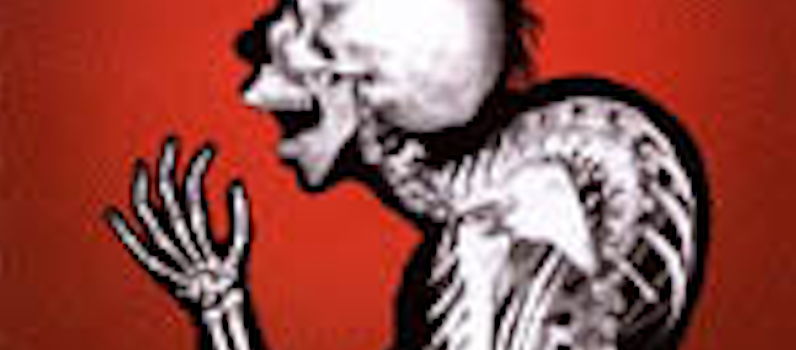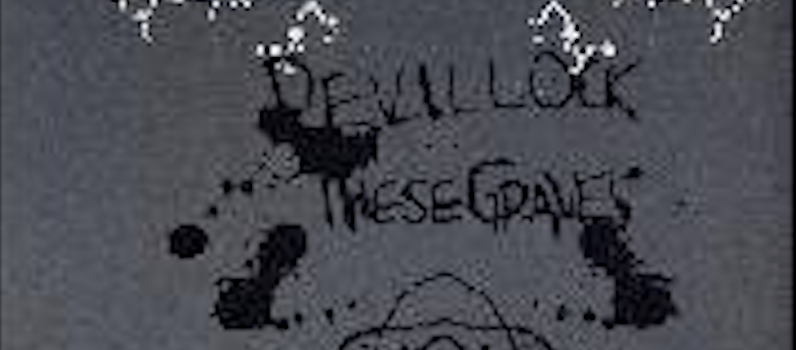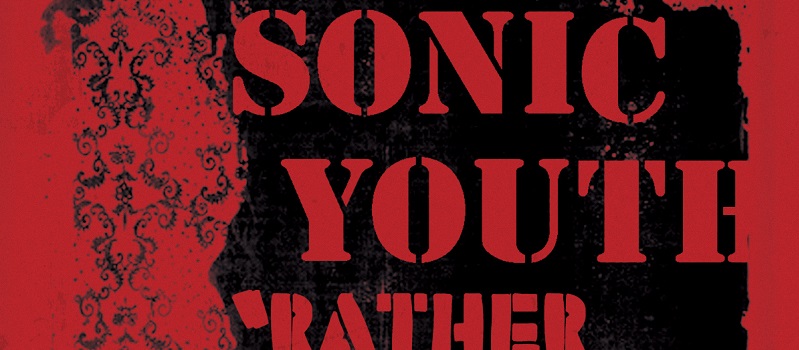There seems to a growing trend in indie rock where bands, tired of the noise emanating from their garages or basements, begin to make vain attempts to stab at all sorts of disjointed or archaic genres, mixing their three-chord guitar attacks with scores of passing musical references. The end result, to say the least, is often more strained than it is spirited. A passing glance at the East Coast surf/trash/punk/metal trio Hunchback might lead you to lump them in with these handfuls of outfits, but their self-released debut, A Hunchback is Also a Man, proves that they’re more than just a cut above the rest.
The six-song EP begins with “Overture to ‘A Date With Vampyros Lesbos,'” which sets the boundaries and language of the band’s high-octane aural assaults. While the horror film overture begins with a slow and menacing guitar line, it quickly unfurls into a stop-and-start instrumental assault of densely textured surf guitars and an aggressive rhythm section that owes as much to punk rock as it does to The Ventures or The Surfaris. The song’s chorus — a series of addictive guitar hooks that sway far more than the highly angular verses — is a reminder of why surf rock, in its most pure forms, is so damn invigorating in the first place. To state it in a way that might be more appropriate to the band’s thematic interests: the songs refuse to stop repeating in your head the way Romero’s undead refuse to stay in the ground.
The band follows the album-opener with “Fulci Lives,” where guitarist Michael Catalano achieves an alarming velocity as he moves further and further up the neck of his guitar, leaving bassist J Nixon and drummer “Cadaver Chris” Irwin to hold down the bottom end. Nixon delivers with distorted bass scales that keep the song grounded, and Irwin responds with abandon, managing to flail around but still stop on a dime when needed. “Blood in the Lightbulb” is a stripped-down version of the song the trio performed when they were part of The Blood Sucking Geeks, a surf/punk act defined by similar obsessions with horror films and the more (ahem) grotesque side of American life. While the Geeks’ take on the song made it into a dark and heavily punk affair — complete with shrieked demonic vocals, samples, and electronics — Hunchback seem to do the song justice by breaking it down to its most basic parts. What remains is a lean, aggressive track with all the venom still flowing, Catalano using palm-muting to give his treble-heavy surf rock lines some weight and density.
Hunchback pulls out similar stops with “Rivers of Gore,” a Blood Sucking Geeks instrumental that — even without the bells and whistles provided by a vocalist or samples from Night of the Living Dead — sounds fleshed out and complete, shifting between lightning-fast trash guitar, explosive drum rolls, and Nixon’s occasional power-pop bass bridges. “Requiem for a Vampire” is arguably one of the record’s finest tracks, with Catalano and Nixon racing each other through the verses as Irwin provides a hard-hitting back-beat that’s not easy to shake. This is stuff that could get the guys from Man or Astro-man remembering why it was reverb and speed (and not the beeps of a supercomputer) that made people flock to their early records. “Requiem for a Vampire,” along with the album-opening “Overture,” is also one of Hunchback’s most complete statements; every note seems to ring true and the progression from verse to verse feels natural enough to give the illusion that it wasn’t scripted before the band wandered into the studio with it. And, while the surf components of the song are cranked up to 10, if the guitars at the front of this thing were distorted or blasting out of a Marshall stack, you wouldn’t hesitate to call it heavy metal. Or, in the least, to call the police.
The album-closing “Theme for a Hunchback” also rings of metal and more plodding forms of punk rock, Catalano and Nixon displaying an incredible chemistry as they plow through driving bridges that, again, blur the lines between surf and its more distorted cousins. The chorus alone on the band’s informal theme is worth the price of hunting down the disc. The song – and the record – ends after a premature fade, in a storm of furious guitars and bass, a hard-hitting march of drums pounding the proceedings into memory. The fact that, in six songs, Hunchback manages to leave something worth remembering is, in and of itself, quite an accomplishment.
Now, if only we could get every genre-busting indie rock band to sound this original and this good, we could really be on to something here. – Delusions of Adequacy, June 9, 2003




